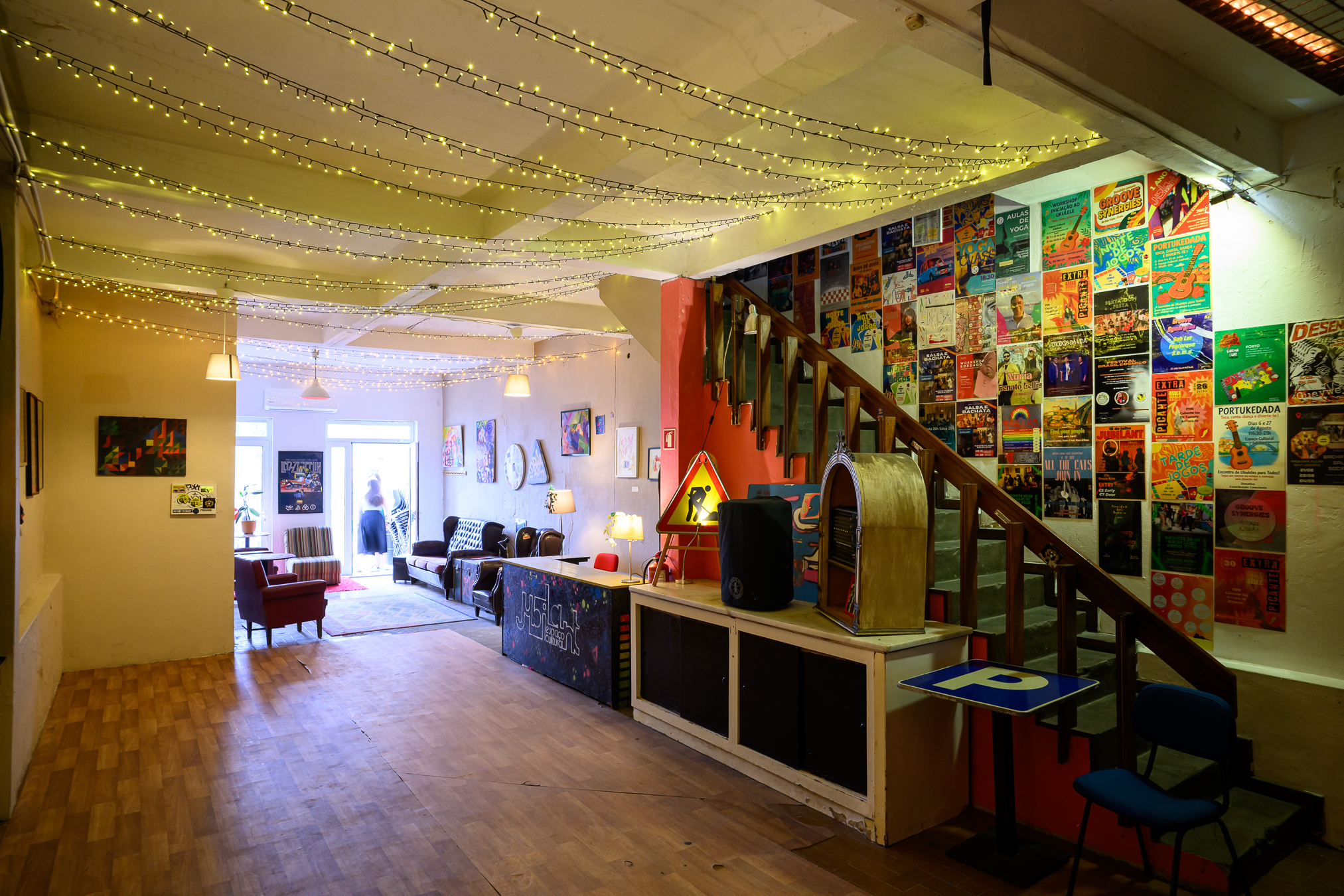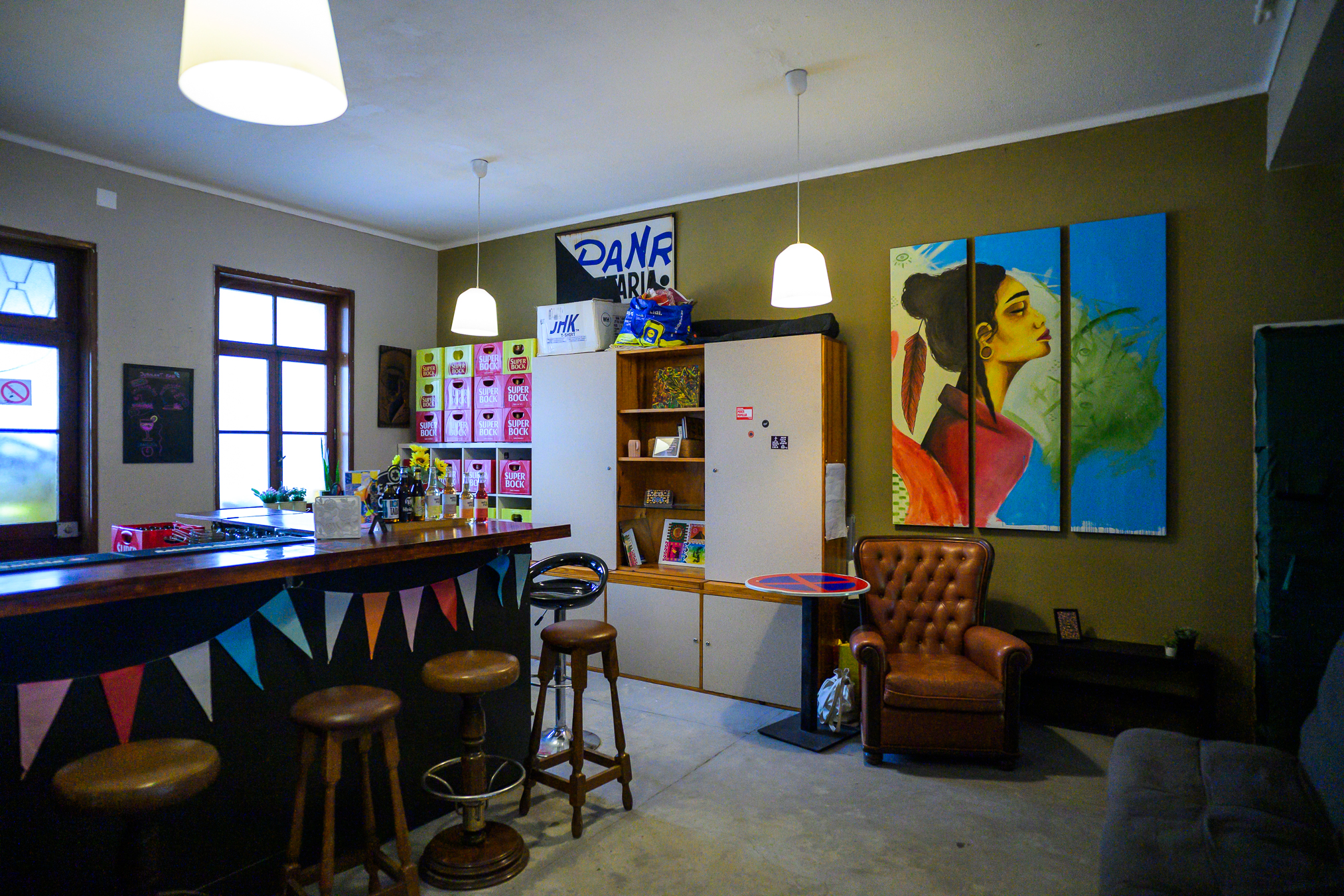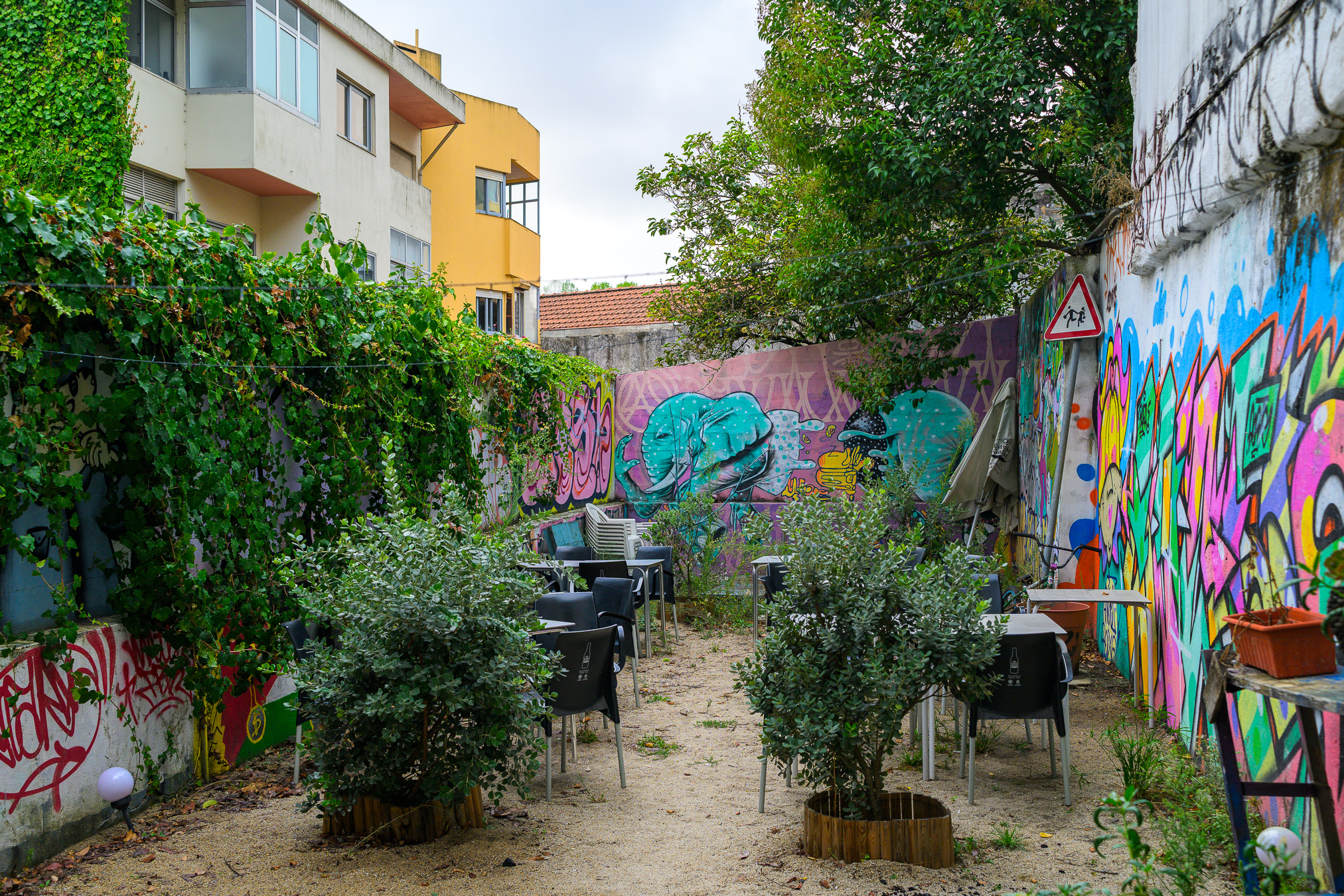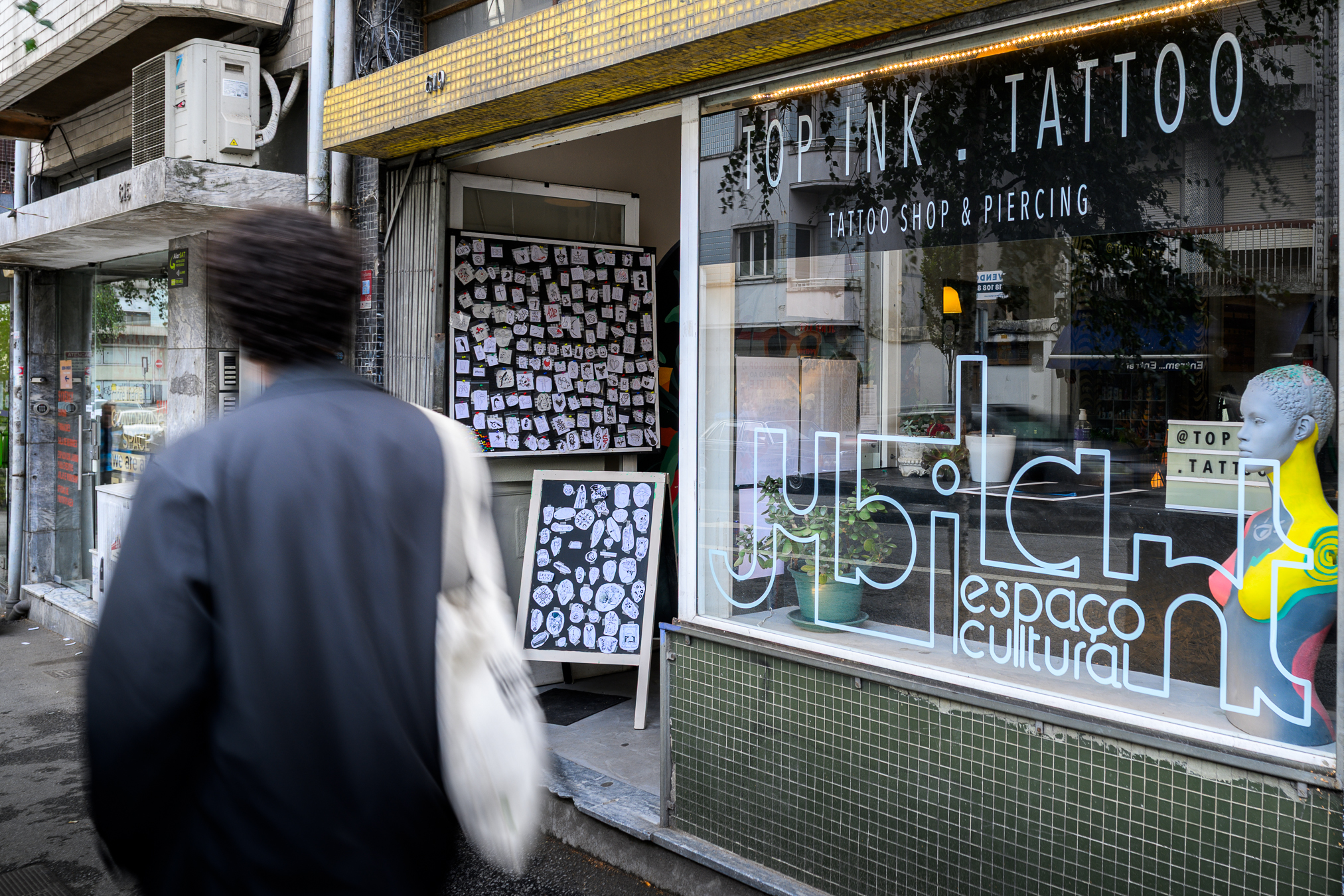EN

Outubro 2025
Fernão de Magalhães Avenue runs from the outskirts of the city to its center and has the usual profile of a major thoroughfare: very residential, with restaurants and supermarkets lining the long stretch. Roughly halfway along this line, there is a pleasant oddity—Espaço Cultural Jubilant (Jubi to its friends) has built up a loyal following with offerings ranging from concerts to dance classes, from talks to exhibitions. We spoke to the team that waters a house that seems to grow like a plant.
Previously known by the extravagant name of Jubilant Relax, the first incarnation of No. 619 was characterized by street culture in its freest form—even today, the outdoor patio is flanked by high walls transformed into a street art gallery—but about a year and a half ago, a new team took over the management of the space. Maintaining the philosophy of organic and natural growth, management passed to two regular visitors: Ágata and Marta Ricca, sisters. In addition to sharing a blood bond, they also share an affinity for the cultural area—Ágata is a musician and works as a choir conductor, while Marta works in audiovisual production and direction. This dual affinity led to a common fantasy, as Ágata recalls: “it was always part of our imagination, we always talked about having a cultural space, and we drew up mental plans on how to start and what to do.”

© Nuno Miguel Coelho
The project began when Ágata, returning from a long master's degree, felt that “I had spent too much time sitting still, writing; I needed to move.” She enrolled in salsa and bachata classes at Arrisca-te Porto, taught by Chilean Eduardo Tirapegui, at Jubilant.

© Nuno Miguel Coelho
As a regular visitor to the space, she realized that the owners were thinking of closing down—and her mental plans kicked into action. Marta recalls how they were “very scared” by a decision that had to be made in just two weeks, but they soon began to design the project. “This space already had an audience, and we tried to figure out how we could keep those who already felt comfortable, while reaching out to other communities with the initiatives we wanted to launch.”
The curatorial design of the events they wanted to host had logistical consequences, according to the specifications recited by Ágata. “If we wanted dance classes, we needed a good floor; if we wanted to organize conversations, we needed chairs; if we wanted game nights, we needed tables.”
Now, the diversity of events they host is wide, with the only golden rule being to preserve the “atmosphere of comfort and inclusivity.” In fact, when we ask if they have ever received an absurd programming proposal, Marta genuinely questions whether that would be possible. “I really don't know what kind of event we would say no to.”
Both keep their jobs because, so far, Jubilant “doesn't make a loss, but it doesn't make a profit either.” And, in line with their consistent philosophy of self-sufficiency and DIY, almost everything in the space is recycled material, installed with their own hands. “It was a spectacular challenge because we had both just finished a long academic period, and we started gluing floors, painting walls, fixing furniture.” From curtains to chairs, much of the decoration was also donated by regulars of the space, transforming it into a guest book signed with objects—where, despite the profusion of colors, patterns, and textures, all the pieces seem to fit perfectly. A kind of crowdsourcing that even extends to the bar menu, as Ágata points out: "One of the most popular items we have is the ‘completo’, a kind of hot dog very popular in Latin America. It has tomato, mayonnaise, and guacamole, and they call it ‘Italian style’ because it has the colors of the flag. Someone suggested we make it available at the bar, and it has been a huge hit."

© Nuno Miguel Coelho
For the future, the sisters have plans on different scales: Ágata talks about having a small bookshop inside the space (“even if it were just a shelf”), while Marta mentions that with better lighting conditions they could host theater events. Both sisters share the ambition of not only curating the initiatives hosted, but also producing events by inviting artists: “We already feel encouraged to promote our own events and projects, but we would never consider hosting someone without guaranteed remuneration, so there is still some financial and operational work to be done before that can happen.”

© Nuno Miguel Coelho
Share
FB
X
WA
LINK
Relacionados


